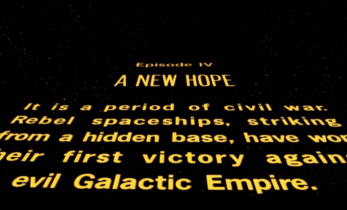Greater than 2 minutes
You don’t know what you don’t know… Quality: handle with care
Lately I have become a little addicted to LinkedIn groups. Of course, most groups I am a member of are for translators. I quite enjoy reading and participating discussions and attempts to save our industry, if not the world. Reading all those comments, one thing struck me: almost every one of them implies that their author is a top-notch translator. “Hurrah!” One might think. All translators who care about the industry enough to join a group and post a comment provide excellent services.
Meanwhile, reading translations I just have to read as part of my everyday life, I get a completely different picture. Bad translations are everywhere. And I’m not talking about machine translations here. So, how does that add up?
Giving it a little thought, it does add up. Smart people know that there is plenty they actually don’t know. Therefore, they continuously strive to broaden their knowledge and experience, to get better and better. They are never satisfied with what they know. They always question their own solutions (in our case translations), and though they are certainly proud of their achievements, bragging doesn’t occur to them, because they know that what they think is perfect may prove to be a complete disaster a few months later when they bump into the right solution they were just unable to find at the time. And that can happen to the best of us.
Then there are translators out there, who know a thing or two, are fairly experienced and confident in their abilities, yet may be ignorant of the special terminology or cultural context of the particular text. Now, this is the dangerous one. Why? Did you notice the word I used? Yep, that’s it: ignorant. Not incompetent or uneducated, just oblivious of a minute thing or two. In the real world it’s not a biggie, as nobody is expected to know everything. Now, this translator gets the text, thinks he can do it with his eyes closed. Then he translates it, he is convinced that it came out just perfect, and delivers it. Chances are that it is not reviewed by a knowledgeable person, if reviewed at all, it just gets out in the circulation. But what if a real expert (might not even be a translator, but actually somebody from the target audience) points out the errors? Been there? Well, I certainly have, and I can only thank that reviewer for opening my eyes not only to the actual shortcomings of that particular translation, much rather to the sad fact that complacency reared his ugly head. Complacency kills, and not only translations.
This is when it downed on me that there is so much I don’t know yet, regardless of how much I do know. So, just a piece of advice, before you learn it the hard way:
If you think you know something, think again.





Wonderful post, Krisztina! I absolutely agree with you we can’t know everything this is why we should specialize in one or two fields so we could nail the terminology, the style the flow every single time. Of course, it’s great to challenge yourself to projects that are outside of comfort zone every now and the, but when we do, we’re treading on a very thin ice.
We need to know our limits, learn to say no and focus on what we do best while working on our shortcomings. Of course, translation is art and it can be quite subjective at times, but there’s always a way a translator can improve his/her skills. We just have to acknowledge the fact that we’re not perfect and that everything we do can always be improved.
Thank you so much for sharing it here! Your story gave me some great food for thought! Thanks!
Thank you Dimitry for commenting, it means a lot to me.
Yes, specialization improves matters a lot, and even then, you just can’t specialize to a very narrow field, as it would lead to boredom and in a worst case scenario, starving:) Stretching our limits is a must in today’s demanding market circumstances, but of course, you are right, those limits should only be stretched to a reasonable extent.
Yes, boredom can be very annoying, that’s why having 2 different specializations can help. Or working in a highly creative field. I’m never bored with video games that I’m localizing because they’re so different in every aspect that every new project is a new and exciting challenge. 🙂
My favorite translations are marketing brochures, which requires creativity, but again, it does matter what you are advertising, so it requires a lot of research as well. I think it’s the same with video games, too, the scenario matters. Another specialization I do is legal, which is such a broad field that I almost constantly find myself stretching my limits a little. Combining the two is surely enough to fill lifelong learning with a meaning, at least until I retire:)
Great post Krisztina, never think we are in complete control of a subject, even our own mother tongue! There’s always a lot to learn. Never stop enquiring, studying, being curious!
Hi Silvia, thank you for commenting.
You said it…and I am glad you agree.
Have a good one!